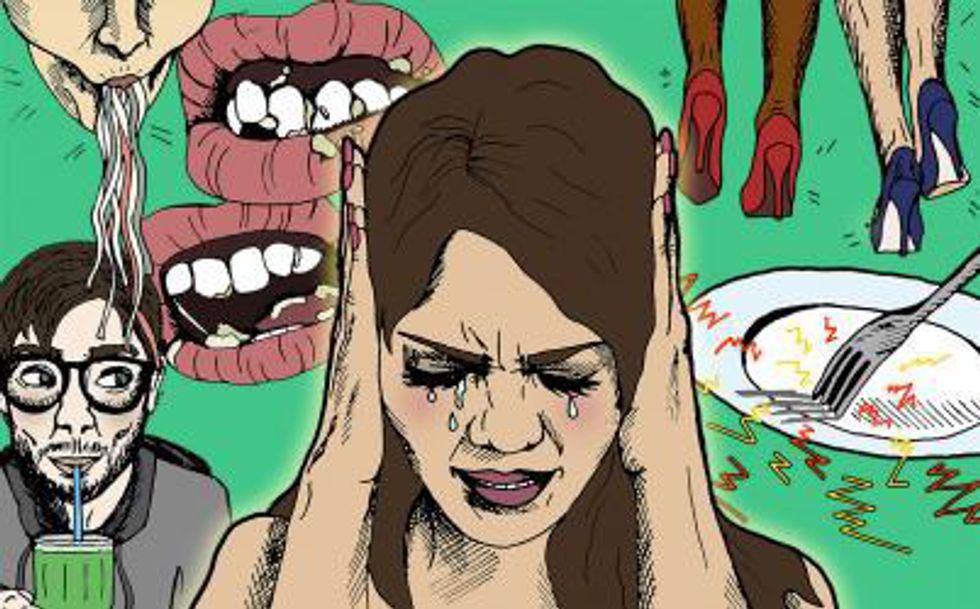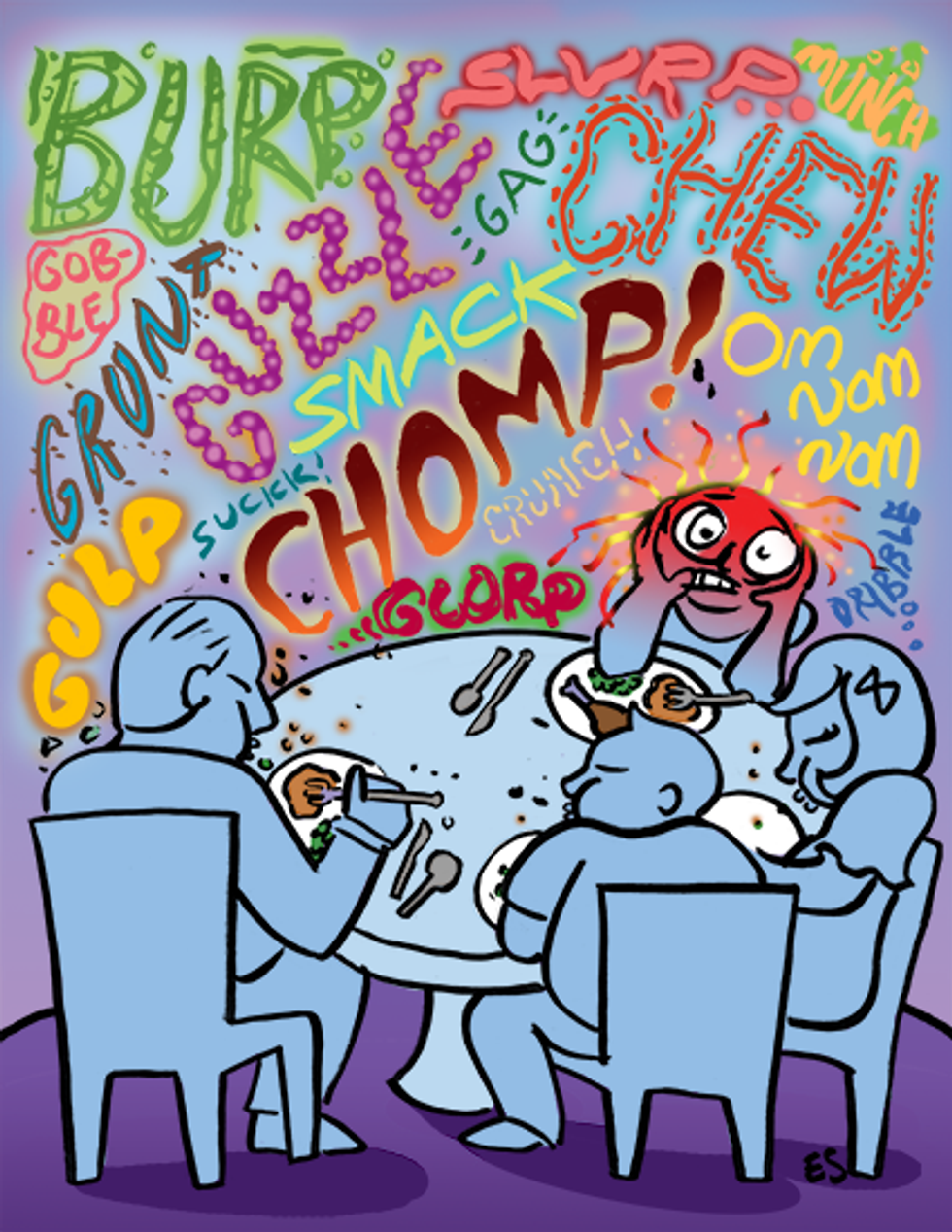The sound of people eating has always annoyed me. I don’t know why, and I wish I could control it, but sometimes I just need to leave a room because I get so angry with the annoying noises and don’t want to take it out on my roommates or family. I think it’s like that for most people, though; a friend smacks their gum and you roll your eyes. Someone hiccups after drinking too fast and you want to tell them to shut up. You know these things are insignificant, but there’s just something about it that sends you through the roof.
Or maybe you know someone who fits this description. Maybe these noises have become so bothersome to them that they have stopped going to populated places, like lunch rooms and restaurants, because the quiet is preferable to the chewing and burping that often fills these spaces. If these sounds have caused them to limit their social encounters, then it may be time for them to learn about Misophonia.
Misophonia doesn’t just relate to food sounds, by the way. It is defined as an extreme sound sensitivity, so the sounds that make you insanely annoyed or incredibly angry can be related to the sound of people eating, the sound of cutlery on a plate, or the sound of people constantly moving around and jostling their feet. Most people don’t notice these sounds at all. Others hear these sounds and become uncomfortable, annoyed even. Still, it’s nothing they can’t fix by plugging in their headphones, right? Or maybe they just tell themselves to get over it and they do.
In cases where Misophonia is the source of the annoyance, however, these everyday sounds can send people into a rage, forcing them to leave the room before they snap. If the case is truly severe, Misophonia can cause someone to avoid public places—such as restaurants, stores, etc.—, which ends up isolating them. This isolation is dangerous as it may lead to depression, suicidal thoughts, and emotional distress.
Though Misophonia is extreme sound sensitivity, doctors do not think it relates to a problem with the ears. Rather, they believe it is a problem that is part physical, part mental. For some reason, the sounds that annoy us most may trigger something in our brain that makes our skin crawl, and these automatic responses are responsible for the rage some of us may feel towards everyday noises.
Currently, doctors are trying to classify Misophonia as its own disorder, as it often gets diagnosed as a symptom of anxiety. The misdiagnoses only cause the problem to go on without any real treatment to help stop it. Now, I realize that most of us are just a little sensitive when it comes to sounds and it has nothing to do with Misophonia. Some of us just get annoyed, is all. I mean, who wants to hear someone eating, burping, and smacking their lips all the time?
However, for those of you who have limited your social contact because these sounds anger you and make you a danger to those around you or yourself, it’s time to talk to your doctor about Misophonia. There are clinics around the country that deal specifically with Misophonia, and many doctors can start therapy to help control the body’s automatic responses to whatever sounds trigger the sensitivity. If you’ve had enough of the limited social contact and want to fix the way you perceive these everyday noises, get it checked out.























